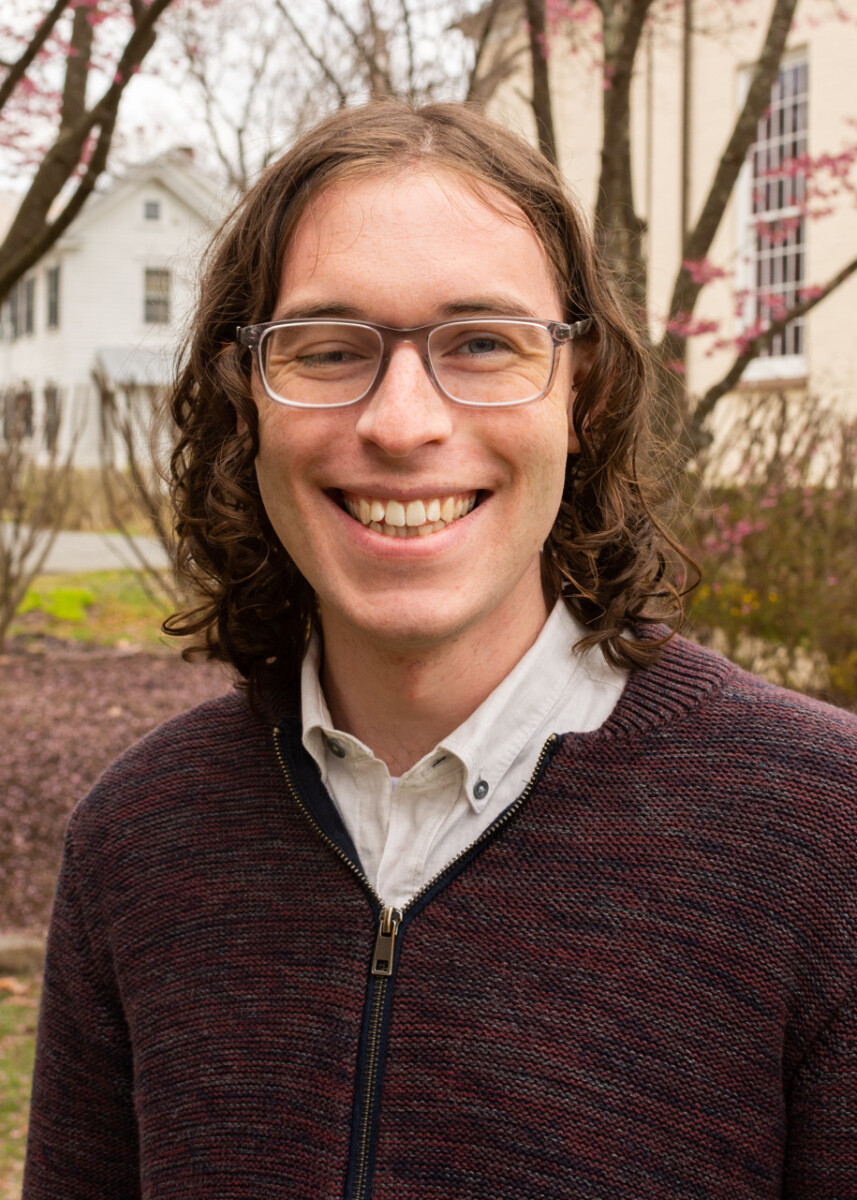I remember when I discovered lament.
In the conservative Baptist church I grew up in, it was cheerfulness, not cleanliness, that was next to godliness. The congregation’s favorite songs were about rejoicing in the Lord, feeling the “sunshine in my soul,” and being “glad I know who Jesus is.” Real obedience to God meant following his commandments “with the right heart attitude.” Sorrow was a trial, a season, a test of faith. Happiness was a crown.

In late high school, I started attending Calvin’s yearly worship symposium as a student musician. There, I watched pastors and worship leaders make space for feelings that were holy but not cheerful: sorrow over global injustice, pain from personal loss, even anger at God’s seeming inaction. Of course, these moments were all followed by the proper liturgical expressions of assurance and hope. But it was what preceded that hope that spoke to me then and still does today.
There is plenty of positive and triumphalist thinking in the Christian tradition. But there is also this: a willingness to look directly at suffering, to speak it out loud without scrambling for an explanation or excuse.
Sometime in the twelfth century, Hildegard of Bingen wrote a responsory (a chanted song with a refrain) for the Feast of the Holy Innocents. On this feast day, one of the grimmest in the Christian calendar, worshipers remember Herod’s brutal massacre of all the male children under two years old in the area near Bethlehem. In the Gospel of Matthew’s account, this is not just a tragedy but an outrage, the desperate lashing-out of a furious tyrant. In response, we hear an ancient lament: Rachel, wailing for her children’s murder, refusing to be consoled.
Hildegard’s responsory begins, against Rachel’s wishes, with consolation. Rex noster promptus est—“our king is swift to receive the blood of innocents; angels in concert chime their praise.” God steps in where earthly justice fails, summoning these wronged souls into God’s presence. For that the angels rejoice. The implication being: we should rejoice too.
But then comes the refrain. Sed nubes super eundem sanguinem plangunt—“But for the blood that is spilled the clouds are grieving.”
In the second verse, the soloists again exult in God’s justice, this time for its vengeance on Herod: “In a grave dream the tyrant was choked for his malice.” This striking metaphor for the king’s death—much more satisfying than Matthew’s “when Herod died”—assures us that flagrant, fatal violence is punished, that the wages of sin really is death.
But then the refrain. “But for the blood that is spilled the clouds are grieving.”
One more time, the singers shout praise: “Glorify the Father, the Spirit and the Son.”
“But for the blood that is spilled the clouds are grieving.”
And that’s how the song ends. The innocents’ blood is with God, the angels are rejoicing, the worshipers offer Trinitarian doxologies, but the clouds are grieving.
I’ve thought a lot recently about that word “grieving.” Last semester, I read The Transit of Empire: Indigenous Critiques of Colonialism,by theChickasaw scholar Jodi A. Byrd, for an American studies course. Byrd argues that white American society has for centuries denied the “grievability” of Indigenous people, and that this denial has justified endless violence.

Byrd’s language here comes from the theorist Judith Butler, who sees “grievability” as a fundamental feature of “a life that matters.” This makes some intuitive sense: When we grieve someone’s loss, we are remembering the life they lived, a life that, in some way, mattered.
But Butler flips this around, arguing that the possibility of being grieved is what makes a life recognizable as a life in the first place. A life is a life if we can imagine its loss being mourned and its worth remembered. As Butler writes, “Without grievability, there is no life, or, rather, there is something living that is other than life.”
Because white settlers refused to see Native life as grievable, Byrd writes, violence against them was justified. They could be consigned to the past, destined for disappearance or removal, without their deaths registering as an outrage. And Byrd argues that much of the US’s violent history—toward American Indians but also many other racial, ethnic, and religious groups—is built on this fundamental refusal to grieve. As long as some people are absent from “the spaces and tenses of grief,” justice is impossible.
For Byrd, this kind of grief is different from lament. “The lamentable is pitiable, but not remediable. It is past and regrettable.” To lament is to express our wish that things had been otherwise, that mistakes were made, that regrets are being felt. Grieving, however, “calls people to acknowledge, to see, and to grapple with lived lives.” It is based not on our own feelings, but on the irreducible humanity of those who suffer.
Grief also demands curiosity and change. If a loss is grievable, Byrd writes, we are compelled to both “understand and to stop” the policies that created such an unlivable world. In lament, we might wish that things had been otherwise; in grief, we are called to build an otherwise.
It’s not worth getting too caught up on words here. I think liturgical lament can be a place for true grief, for recognizing the divine worth of those lost to violence and committing ourselves to making the world more livable. But I do think it’s worth thinking about this distinction. How can we practice grief rather than merely expressing regret and moving on?
Which brings us back to Hildegard’s clouds. One of the most powerful themes in Hebrew and Christian scripture is that creation will go on praising and mourning when humans fail to—rocks crying out, etc., etc. But Hildegard’s clouds are even more defiant than that. They keep weeping with the families of the holy innocents even as all heaven is rejoicing. They insist on the grievability of these babies’ lives. They insist that the end of Herod’s reign doesn’t wipe away its terror. They insist three times over that praise stop and listen to grief.
Grievability, in Byrd and Butler’s terms, is a social phenomenon. Whole groups decide which other whole groups are worthy of “a life that is a life.” But even a single person can momentarily disrupt these decisions, wrenching public attention towards those who are suffering and demanding that we grieve them. (Scholar and podcaster Hannah McGregor offers Katniss Everdeen’s public mourning of Rue in The Hunger Games as an example, but there are many more in the real world.)
This is what Hildegard’s clouds do. They refuse to consign the dead innocents to a regrettable past that we can’t do anything about. They don’t just refuse to be consoled, they refuse to console. They interrupt a news cycle that has moved on. They demand that their grief be heard, that dead children be mourned as lived lives and not as a plot device.
High-school me didn’t know how much violence there was in the world. Twenty-nine-year-old me has only a slightly better idea. But I felt then, and still do now, that one thing Christians must do is create space for grief. And voices like Byrd’s and Butler’s are teaching me what that grief demands: not merely lament, but insistence, interruption, refusal, refrains.
In this unlivable world of death and destruction, what would it mean to imitate the clouds rather than the angels?
Translations of Hildegard’s text are by Barbara Newman, in her critical edition of Hildegard’s Symphonia. You can also find the text, a translation, the sheet music, and a theological commentary at the International Society of Hildegard von Bingen Studies’ website.


6 Responses
Thank you, Josh. I, too, learned and experienced most of what I know about lament from the Calvin Institute of Christian Worship, including the Symposium on Worship. I grew up in the CRC, and while it was not all ‘happy-clappy’ (we definitely knew our depravity), we also did not know how to lament. I love this quote by Michael Card, songwriter and author, who said he’s come to “believe and trust and hope that tears of lament are the missing door, the way into an experience with a God whose depth of compassion we have never imagined.”
This is beautiful and nourishing, Josh. Yes to honest expressions of grief, and yes even more to shared liturgical practices of grief. And to finding sustenance and kinship in creation’s grieving. Makes me think the old blues song “The Sky Is Crying” might be a spiritual cousin of Hildegard.
A moving reflection, and an interesting link between medieval and contemporary conceptions of the world. Are the clouds and the oceans and the forests all grieving today for the death of innocent children from war and famine and heat waves and climate-change-fueled floods?
Thanks, Josh. Yesterday someone posted on X the following words by Bertolt Brecht: “In the dark times will there also be singing? Yes, there will be singing. About the dark times.”
Thanks, Josh, for this meditation on grief, loss, human worth, and an exemplary instance of such grieving. Thanks for both Byrd and this text by Hildegard of Bingen–and thanks also for the link to the text and music.
These reflections are a striking complement to Douglas Brouwer’s review of Lanta Davis’s Becoming by Beholding: The Power of the Imagination in Spiritual Formation, also in today’s RJ. With poetry and music, Hildegard invites us to “see” both the bright angelic heavens and the lowering clouds of our immanent frame at the same time, grasping a paradoxical truth that mere logic obscures. I think that Hildegard’s Latin is even more emphatic on the point. “Sed nubes/ Super eundem sanguinem/ Plangunt” might better be translated as “But the clouds/ Over this very same blood/ Loudly mourn.”